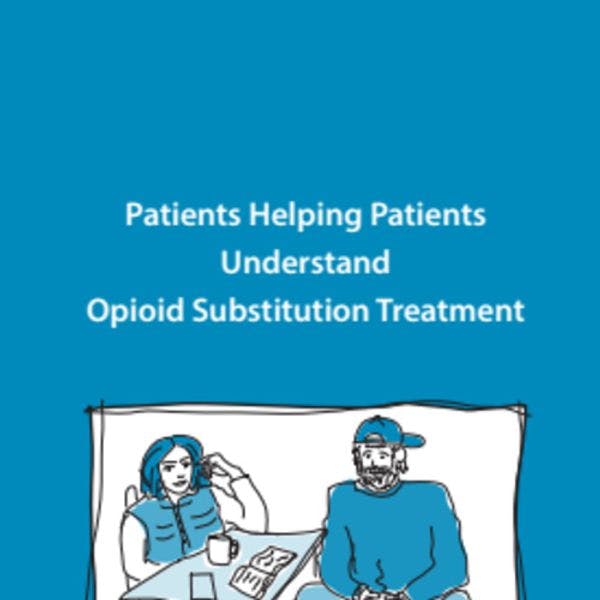Patients helping patients understand opioid substitution treatment
Since you are reading this booklet, we assume you are looking for help for opioid dependence – addiction to heroin, fentanyl, oxycodone or any number of other pills. Or maybe someone close to you needs this help. This booklet talks about opioid substitution treatment (OST) – medication-assisted treatment with methadone or Suboxone (buprenorphine/naloxone). These medications are also opioids, but they provide stable, long-acting relief from withdrawal and cravings. They replace the heroin or fentanyl that is causing the problem with a regular dose of a medication that allows for a stable life.
This handbook has been written by a group of patients in British Columbia. We all have long experience with medication-assisted treatments for opioid dependence. The language about drug use is complex. The latest version of the manual that defines diseases and disorders (DSM-V) no longer refers to “dependence” and uses “addiction” instead. In this handbook, we continue to use “dependence” to refer to our experience of “needing the drug” and significant withdrawal symptoms when trying to quit or cut down on our use. Deciding to seek help is an important step in any process of recovery. You are making a wise decision to seek help now. People dependent on opioid drugs and not receiving opioid substitution treatment (OST) are many times more likely to die or be seriously harmed by problem drug use.
Keep up-to-date with drug policy developments by subscribing to the IDPC Monthly Alert.
